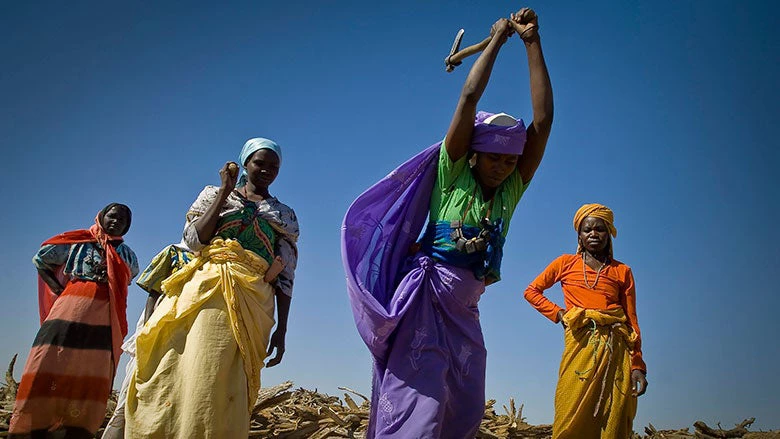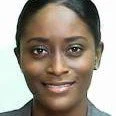
On a beautiful fall afternoon in 2017, I visited a “female only” village in Telkouk locality, Kassala State, Sudan. There, a woman dressed in blue caught my attention. We were wearing the same color that day, and I soon found that she and I shared a few other things in common.
I had been in an all-girls secondary school for seven years, by choice. She lives in, and is likely to live the rest of her life in an all-female village; not by choice, but due to societal norms and culture. In secondary school, our mantra was, “a lady is seen and not heard.” From observation, hers might be, “a lady should neither be seen nor heard beyond her village confines.”
I met her while visiting the village as part of my work with the Sudan Sustainable Natural Resource Management Project, part of the World Bank/GEF-financed Great Green Wall Initiative. The project aims to transform livelihoods in villages like hers, a female-only village, living off degraded agricultural land heavily hit by climate change as in many parts of rural areas of Sudan. It helps secure year-round access to water and highly nutritious fortified seeds by promoting the adoption of innovative land and water management practices.
Although I did not get her name, in more ways than one, she stood out and made a memorable contribution to our consultation. Were it not for her remarkably open and enlightening attitude, we would have missed a heartfelt plea for herself and her children to learn to read and write. As of 2008, Sudan’s adult literacy was estimated at 30%.
While her confinement to an all-female village has obvious implications for everyday life, the project ignited a spark of hope in her eyes. Hope for a better life for herself, or perhaps, hope to be able to be part of a wider societal change and transformation. She also proved that the project’s alternative livelihoods component was not only to create jobs and income but also to give voice to the voiceless. Empowering and nurturing people like her could make champions who could mobilize communities to proactively support and sustain project outcomes.
She highlighted a key value for project sustainability: the local community must be empowered such as through alternative livelihoods. This includes providing basic literacy for women and youth to allow them to unlock microfinance opportunities. Her plea for education resonates well with adopting integrated approaches that break the vicious cycle of poverty.
She is but one portrait in a mural of North Sudan. Women continue to push the frontiers and support households in various livelihood activities despite cultural and capacity limitations. Like her, the government maintains focus on improving development, reducing poverty and climate risks that come hand in hand with land degradation, an encroaching Sahara Desert, and a fragile environment and political context. Thanks to Sudan’s natural resources, its economy continues to be driven by the agrarian sector, livestock and oil. But not without challenges.
Even with the constraints and confines of the trade sanctions, Sudan has received limited grant financing opportunities from the World Bank to support a diversified economic growth path resilient to climate and disaster risks. Additionally, a Forest Carbon Partnership Facility grant-financed Reducing Emissions from Deforestation and Forest Degradation (REDD+) Readiness Project investigates drivers of deforestation and degradation. REDD+ also explores potential avenues to share benefits derived from forest-climate interventions with communities and develop an inclusive national REDD+ strategy to enhance forest contribution to climate mitigation and simultaneously promote activities that will improve livelihoods and conserve biodiversity.
Sensitivity to gender values is a key part of the Sudan environment portfolio, which is successfully using the services of Community Mobilization Officers (CMO) to help connect with beneficiaries in remote villages. Normally not allowed, the female CMO was given access to the men-only village. This socio-economic development is surely a progress. The project will continue to strengthen benefits to women and children, especially ones whose voices may otherwise be muzzled by traditional, cultural and other extraneous restrictions.
With international trade sanctions against Sudan lifted as of October 12, 2017 and as the country begins a process towards rejoining World Bank IDA, these projects can provide a solid basis for increasing engagement, an approach that inspired this memorable encounter with the Lady in Blue.


Join the Conversation